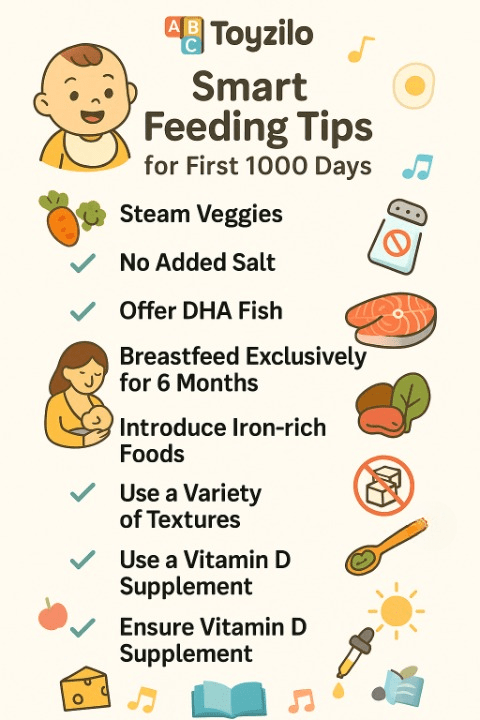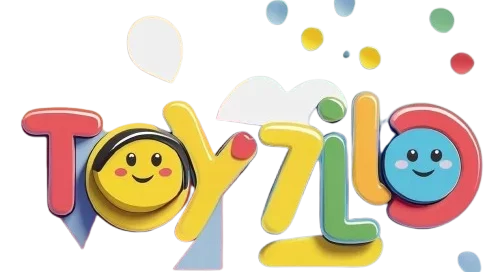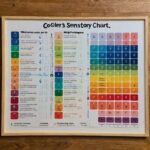Babies grow faster in their first year of life than at any other time. From cooing sounds to grasping objects, every tiny milestone is a sign of massive brain growth. One of the best ways to support this development is through play. But it’s not just any play — it’s intentional, developmentally appropriate, and often simpler than you think.
This guide is designed for parents of children aged 0–12 months and focuses on free, accessible, and science-backed baby brain development activities. We’ll also include age-specific recommendations and highlight queries like baby brain development activities 0-3 months, 0-6 months, and 1-year-old baby brain development activities.
🌱 Why Is Play Crucial for Brain Development?
Play is not just fun for babies — it’s essential for:
-
Forming neural connections
-
Stimulating sensory and motor pathways
-
Building emotional bonds
-
Encouraging language and cognitive skills
The first 1000 days — including pregnancy — are especially vital, as over 80% of the brain’s structure is formed during this period.
🧠 Brain Development by Age: What’s Happening?
| Age Range | Key Milestones |
|---|---|
| 0–3 Months | Sensory awareness, head movement, basic reflexes |
| 3–6 Months | Eye tracking, hand-to-mouth movement, laughing |
| 6–9 Months | Sitting up, object exploration, babbling |
| 9–12 Months | Crawling, mimicking, early words and problem-solving |
👶 Baby Brain Development Activities (0–3 Months)
1. Skin-to-Skin Contact
Stimulates bonding, regulates heartbeat, and calms baby. It also boosts emotional development and stress regulation.
2. Face Time (No, not the iPhone kind!)
Hold your baby close and let them gaze at your face. Babies naturally focus on faces — it stimulates visual and emotional pathways.
3. High-Contrast Cards
Black-and-white flashcards or books stimulate visual pathways, perfect for the underdeveloped eyesight in early infancy.
4. Soothing Sounds & Talking
Talk, hum, and sing to your baby. Narrate your day. This encourages early language development.
🍼 Baby Brain Development Activities (3–6 Months)
5. Tummy Time
Crucial for motor development, tummy time strengthens neck, shoulder, and back muscles, and supports hand-eye coordination.
6. Mirror Play
Let baby look at themselves in a baby-safe mirror — great for self-recognition and visual stimulation.
7. Gentle Music & Dance
Swaying and bouncing to rhythm helps in auditory development and body awareness.
🧸 Baby Brain Development Activities (6–12 Months)
8. Peekaboo
Simple and magical. Helps your baby understand object permanence (that things exist even when out of sight).
9. Stacking & Sorting Toys
Encourages problem-solving and fine motor skills. Use safe, colorful blocks or cups.
10. Cause-and-Effect Toys
Buttons, levers, or soft musical toys teach baby how actions result in outcomes — a crucial cognitive milestone.

🧾 Bonus: DIY & Free Baby Brain Boosters
How to encourage brain development through play for babies under 1 free
-
Sensory bags: Fill zip-locks with hair gel, glitter, or beads for tactile fun.
-
Texture baskets: Collect safe household items with different textures.
-
Bubble play: Watching and popping bubbles engages vision and hand coordination.
-
Nature walks: Baby in a stroller taking in new sights and sounds improves sensory mapping.
👩⚕️ Pregnancy & Baby Brain Development
Baby’s brain development begins in the womb. Expecting parents can boost it by:
-
Consuming folic acid, choline, omega-3s
-
Listening to calming music
-
Talking or reading aloud to your bump
-
Minimizing stress
📚 Books to Stimulate Baby Brain Development
-
“Look, Look!” by Peter Linenthal – for visual stimulation (0–3 months)
-
“Global Babies” – diverse baby faces for bonding and visual joy
-
“Tails” by Matthew Van Fleet – tactile flaps, textures, and rhymes
📚 Include a rotating book section in your baby’s routine to foster early language and focus skills.
🧠 Final Thoughts
Supporting your baby’s brain doesn’t require fancy gadgets or expensive classes. All it takes is love, attention, and purposeful play. Every moment you spend bonding with your child is building their foundation for a lifetime of learning.
By incorporating these baby brain development activities into your daily life, you’re not just playing — you’re laying down the neural pathways of the future.



